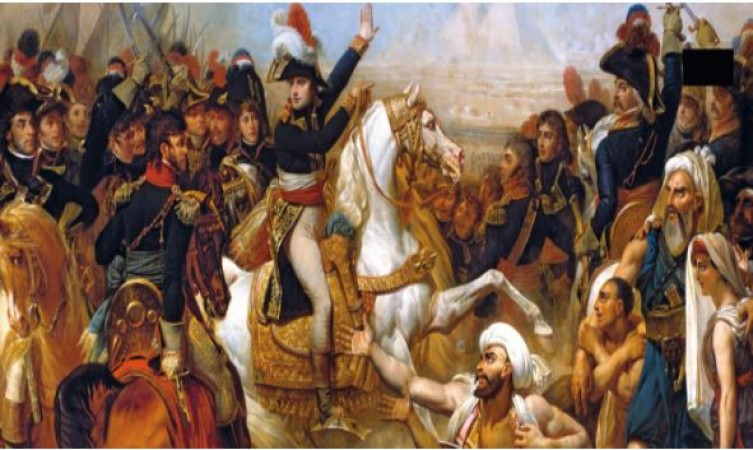
History is filled with significant events that shaped nations and left a lasting impact on the world. On July 21, 1798, one such remarkable event occurred in Egypt - the Battle of Pyramids (also known as the Battle of Embabeh) - where Napoleon Bonaparte's military genius prevailed against the Mamluk rulers, resulting in a decisive victory. Meanwhile, in a distant land, the seeds for another historic development were sown when the New York State Legislature set aside over 750 acres of land on Manhattan Island, which would eventually give rise to one of the world's most iconic urban spaces - Central Park. This article delves into these two remarkable events and their profound significance.
The Battle of Pyramids:
In 1798, Napoleon Bonaparte, the brilliant military strategist and General of the French Revolutionary Army, set his sights on Egypt as part of his ambitious plan to establish French dominance in the region and challenge British interests in India. With a well-trained army of 40,000 soldiers, Napoleon landed in Alexandria, Egypt, on July 1, 1798.
His forces encountered fierce resistance from the Mamluk rulers, who were skilled equestrian warriors and held considerable power in the region. The pivotal moment came on July 21, 1798, near the village of Embabeh, just outside Cairo, where Napoleon faced the Mamluks in a battle that would shape the fate of Egypt.
Despite being heavily outnumbered, Napoleon's military acumen and modern military tactics proved decisive. Utilizing superior artillery, well-coordinated infantry, and strategic positioning, the French troops overwhelmed the Mamluks and dealt a crushing blow to their army. This victory solidified Napoleon's control over Egypt and marked a turning point in the region's history.
The Aftermath and Legacy:
Napoleon's conquest of Egypt was not without its challenges, and his rule faced resistance from both local Egyptians and the British. However, the Battle of Pyramids cemented Napoleon's reputation as a military genius and thrust him into the global spotlight.
While Napoleon's influence on Egypt was profound, the French presence in the region was eventually short-lived. In 1801, British forces under General Sir Ralph Abercromby ousted the French from Egypt, leading to the eventual British occupation of the territory.
Central Park's Creation:
As events unfolded in Egypt, another significant development was taking place in the United States, specifically in New York City. By the mid-19th century, the city was experiencing rapid urbanization and population growth. Concerns about overcrowding and the need for public spaces prompted civic leaders and urban planners to contemplate the creation of a large park.
In 1853, the New York State Legislature passed the Central Park Act, setting aside more than 750 acres of land in the heart of Manhattan Island for the creation of a grand urban park. The design of Central Park was entrusted to Frederick Law Olmsted and Calvert Vaux, who crafted a visionary plan that blended natural landscapes with recreational facilities.
Construction of Central Park began in 1858 and spanned over a decade. The park's design incorporated open lawns, meandering pathways, serene lakes, and scenic bridges. It aimed to offer New Yorkers a respite from the bustling city and provide an oasis of greenery and leisure.
Conclusion:
The Battle of Pyramids and the creation of Central Park are two extraordinary events that unfolded worlds apart but left a profound impact on their respective societies. Napoleon Bonaparte's triumph in Egypt demonstrated his military brilliance, while Central Park's establishment showcased the importance of public spaces in rapidly growing urban centers.
These events are a testament to the significance of history and how moments of greatness and foresight have shaped our world. Both the Battle of Pyramids and Central Park stand as reminders of human achievement, innovation, and the enduring impact of visionary actions taken in the past.
Embassy of a NATO candidate that burned the Koran was set on fire
Cleverly Begs Sunak to Keep Him as Foreign Secretary
Israeli lawmakers draft a contentious bill for final votes amidst protests